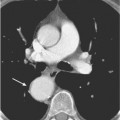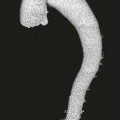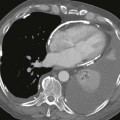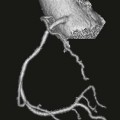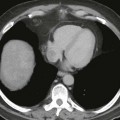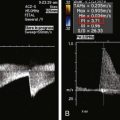
Healthcare’s staffing crisis has reached a tipping point. By 2030, we’ll need 206,553 additional nurses to meet patient demand — a shortage that traditional four-year nursing programs simply can’t address quickly enough.
Enter hybrid ABSN programs. These accelerated pathways compress comprehensive nursing education into 12-24 months, targeting professionals who already hold bachelor’s degrees. Rather than starting from scratch, they build on existing academic achievements while eliminating redundant coursework.
The numbers tell a compelling story about why these programs matter now more than ever.
When Numbers Tell the Story
Forty-two states will face nursing shortages by 2030. That’s not a projection—it’s based on current retirement rates and population demographics. Over one million registered nurses will retire within the next seven years, while demand continues climbing.
California alone needs 44,500 additional nurses. Texas faces similar pressures. The Bureau of Labor Statistics projects 194,500 average annual openings for registered nurses between 2020-2030, yet traditional programs graduate far fewer candidates annually.
Here’s where accelerated programs make mathematical sense. They target the 40% of nursing school applicants who already possess bachelor’s degrees in other fields. These candidates don’t need general education requirements—they need focused nursing curricula delivered efficiently.
The timeline compression works because it eliminates academic redundancy, not educational rigor. Multiple institutions report 90-93% NCLEX pass rates among their ABSN graduates, matching or exceeding traditional program outcomes.
Speed doesn’t compromise quality when the foundation already exists.
Where Virtual Meets Reality
Today’s hybrid programs leverage full simulation technology that simulates actual health care environments. Students make use of high-fidelity medical manikins during intensive campus residencies. In this environment, students can rehearse scenarios without risk to patients or worry about outcomes.
This is not about replacing clinical experience; this is aiming to provide as much preparation to students, as possible before going into actual clinical positions.
Research indicates that virtual simulation develops clinical reasoning through deliberate practice in controlled settings. Students can repeatedly attend to complex scenarios until their decision-making becomes instinctual, then subsequently practice at real patient encounters.
The hybrid nature fits more precisely with how health care really is today. Nurses now constantly shift between digital system interaction and physical care. They read electronic health records information, then physically assess patients. They engage in telehealth calls, then return to hands-on treatment.
Programs that blend online theoretical learning and intensive clinical rotations prepare graduates for what modern practice is like. Students also gain comfort in navigating between learning modes in both virtual and real life; this is an important transferability skill as it applies to some clinical roles that rely heavily on technology in the learning environment.
The Mathematics of Career Acceleration
Let’s examine the financial realities. Public hybrid ABSN programs typically cost around $25,000, while private options range from $60,000-$70,000. Compare this to traditional four-year programs plus opportunity costs, and the economics become clear.
Students can maintain part-time employment during online coursework phases, reducing financial strain during transition periods. Clinical partnerships with major healthcare systems—including Inova, MedStar, and Virginia Hospital Center—provide structured skill development without additional costs.
The timeline advantage creates immediate career benefits:
- 16-month programs vs. traditional 4-year pathways mean faster entry into higher-paying positions
- BSN preparation opens advancement opportunities beyond entry-level roles
- Strong job market demand with nursing projected to grow 28.4% to 3.6 million positions
- Graduates report being actively recruited by top healthcare institutions
Consider the opportunity cost calculation. Traditional programs require four years of full-time study. Hybrid programs allow career changers to maintain some income while completing accelerated curricula in 12-18 months.
The return on investment becomes obvious when you factor in both direct educational costs and earnings potential acceleration.
Many graduates report that their diverse professional backgrounds actually enhance their nursing practice. Previous experience in business, education, or other healthcare roles provides perspective that enriches patient interactions and workplace collaboration.
This isn’t about fast-tracking unqualified candidates—it’s about efficiently preparing capable professionals who bring valuable skills to nursing.
Beyond the Degree
These programs address more than individual career transitions. They represent systematic responses to healthcare workforce challenges, with documented success rates proving that accelerated pathways maintain educational quality while meeting urgent staffing needs.
The convergence of workforce demands, educational technology, and career flexibility has created unique opportunities. Hybrid ABSN programs offer genuine solutions backed by measurable outcomes rather than theoretical promises.
As nursing growth continues—with projections showing expansion to 3.6 million positions—these educational models will likely expand further. The proven combination of rigorous online coursework with intensive clinical experiences creates templates for addressing other healthcare education challenges.
For healthcare professionals considering transitions, the data provides confidence. These pathways deliver tangible results for students while addressing critical industry needs.
The future of healthcare workforce development increasingly depends on such innovative approaches. When traditional timelines can’t meet urgent demands, hybrid programs offer practical alternatives that benefit both career changers and the patients they’ll ultimately serve.
Stay updated, free articles. Join our Telegram channel

Full access? Get Clinical Tree


